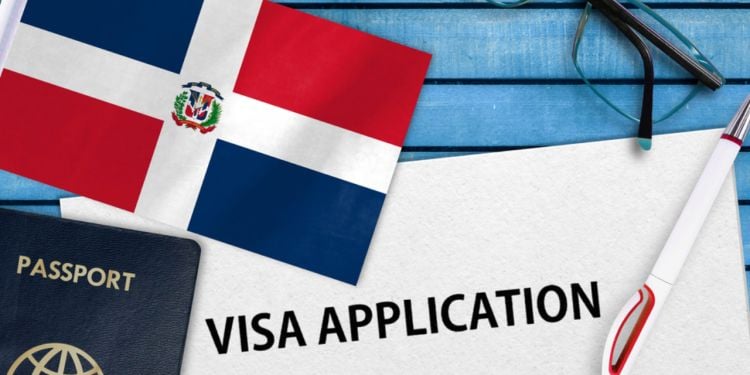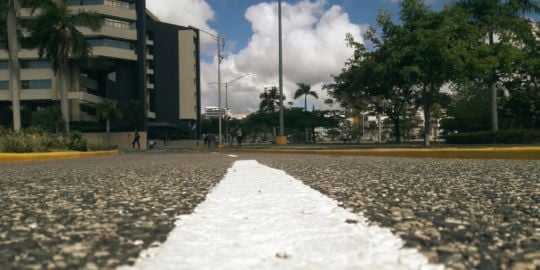Visas for the Dominican Republic

When thinking of moving to the Dominican Republic, there are plenty of different types of visas depending on your personal circumstances, how long you plan on staying, and the purpose of your visit. The visa type you need, the requirements, and the costs can change from time to time, so it is recommended to check before you head to the DR.
Most expats come to the Dominican Republic first to carry out due diligence and later decide if this really is a country for them to live in. If so, in what corner of the DR do they want to set up their tent? First-time visitors usually stay for a couple of weeks, and this does not require a visa for most people; it is only a tourist card that you can get upon arrival at the airport.
The Dominican tourist card
The tourist card costs US$10. The majority of people will need a tourist card on top of their passport unless their country of origin is Argentina, Chile, Ecuador, Israel, Japan, Peru, South Korea, or Uruguay, in which case you can enter without one. As long as you can legally enter the European Union, the United Kingdom, the United States of America, or Canada, among others, you can enter the Dominican Republic with just a tourist card and a passport.
The tourist card can be used up to a year after purchase and is valid for stays of up to 30 days as a tourist but does not allow working. The most common way to buy it is at the airport or port when entering the country, but it is also available at Dominican embassies and consulates abroad. The Dominican government is currently trying to ensure the tourist card is always included in the airline ticket or holiday price, but this hasn't yet been implemented.
When you leave the country, you will be charged an exit fee if you remain longer than 30 days. Usually, the amount is determined by the length of time overstayed, and it is paid at the departure airport or port's Immigration counter. There is no question that many people come to the Dominican Republic knowing they will stay much longer and simply pay the overstay fee. However, there are signs that this is being cracked down on, and those planning to stay significantly longer should look into acquiring residency prior to arrival.
If you come from one of the countries that do not qualify for a tourist card, you will need to apply for a Tourist Visa, which is issued by the local Dominican consulate.
Residency Visa in the Dominican Republic
The Dominican Republic requires you to apply for residency if you decide to live there. There was a time when people could live in the country without becoming permanent residents, but new immigration policies have made residency more or less mandatory for the following reasons:
- Without residency, you cannot obtain a Dominican identity card, called a cedula;
- You need a cedula to apply for a Dominican driving license – foreign or international permits are only valid for 90 days;
- You need a cedula to be able to have a mobile phone contract, open a bank account, have car insurance, and, in some cases, purchase health insurance;
- If you are found working in the country without residency, you can be deported.
You will need to begin the residency application process in your home country at the Dominican consulate. To begin, you must apply for a resident visa in your country. Following its issue by your local consulate, you have 60 days to apply for your initial residency in the Dominican Republic at the migration office there. A residency visa is not granted to just anyone, and if you want one, you must meet the following requirements:
- Have a link to the Dominican Republic. This will include having a home in the DR, being Dominican, having Dominican children, or being married to a Dominican;
- Receive a pension of at least USD 1,500 a month;
- Receive a rental income of at least USD 2,000 a month;
- Be prepared to invest at least USD 200,000 in the Dominican Republic, which could be buying a business or a property;
- Have a work contract for a job in the Dominican Republic.
If you cannot satisfy one of the above, it is unlikely you will be able to obtain a residency visa and become a resident of the Dominican Republic.
However, there are other visas for those wishing to come to the Dominican Republic if you do not qualify for a residency visa. These include a Business visa for those wishing to come and conduct business in the country, and they last for 60 days but can be extended for up to a year with multiple entries up to 2 months at a time. The government also offers student visas, which last for a year and can be renewed for the duration of the study. For those coming to the Dominican Republic to work, work visas last a year, and these are renewable. Diplomats can obtain diplomatic visas for entry into the country. The Dependent visa is available for spouses and dependents of students, workers, diplomats, and business travelers.
Visas for all of these countries are available at your local Dominican consulate.
Documentation needed in the Dominican Republic
Applicants for visas from the Dominican Republic, excluding the Tourist Card, must submit several pieces of documentation. These are listed on the Consulate websites, which are detailed at the end of this article. The requirements do change from time to time and vary depending on the visa required, so they are worth checking before you apply. The general requirements are as follows:
- Valid passport: Your passport should be valid for at least until your expected return home;
- Passport photo: Submit a passport-size color photo with a white background, hair off the face, and without earrings;
- Birth and marriage certificates: These should be the long-form versions, issued within the previous 6 months, apostilled, or legalized if your country is not a signatory to the Hague Convention. They should also be translated into Spanish and the translation legalized;
- Medical certificate: Your General practitioner should issue a medical certificate certifying that you have no contagious diseases. This document should also be translated into Spanish;
- Criminal record check: Obtain a criminal record check from your home country, apostilled, and translated into Spanish;
- Proof of income: Provide bank statements, a letter from the bank, rental agreements, or a pension letter as proof of income;
- Identity cards: Submit copies of your local identity cards, such as passport, driving license, or residency card;
- Authorization for minors: If minors are traveling alone, provide notarized authorizations from both parents or legal guardians, translated into Spanish;
- Letter to Consular section: Include a letter in Spanish addressed to the Consular section containing your name, address, nationality, occupation, and reason for visiting the Dominican Republic;
- Employer or university letter: If applying for a work or student visa, include a letter from the employer or university confirming your position;
- Guarantee letter: For residency visa applications, provide a guarantee letter signed by a Dominican or a foreigner with Dominican Republic residency. This letter should specify your relationship with the guarantor and their willingness to cover deportation expenses if you violate Dominican law. It must be signed and stamped by a Dominican notary.
Getting a Dominican residency visa can be complicated, especially if you don't speak Spanish, so most people hire a Dominican immigration lawyer to make the process easier. Consulates will always offer to translate documents into Spanish for you, but be aware that they are substantially more expensive than having them done by someone other than the consulate.
Useful links:









